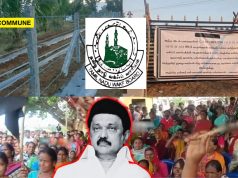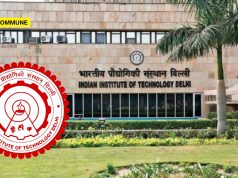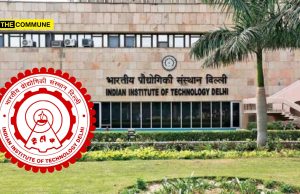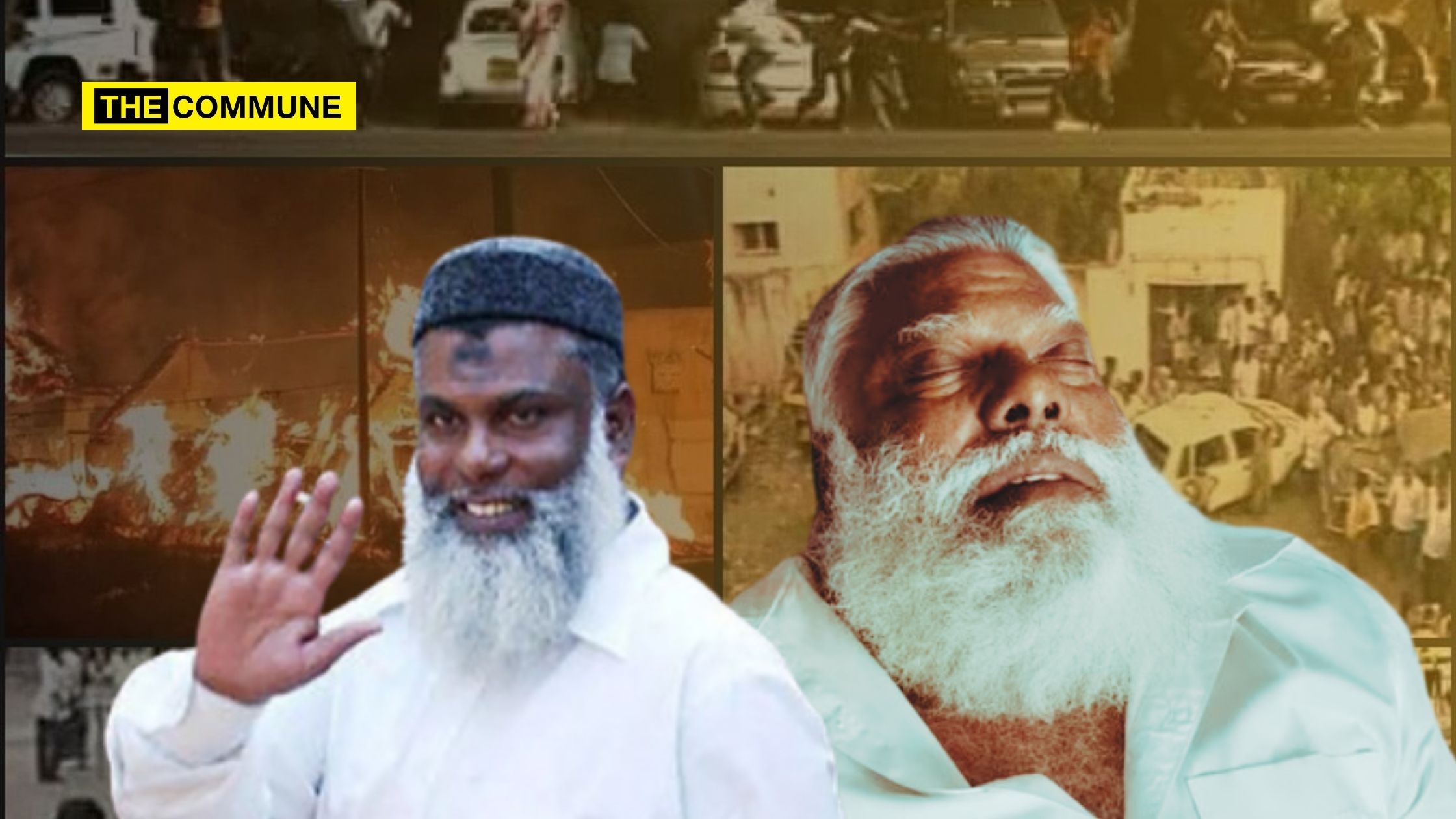
A Tamil Nadu court has condemned recent remarks by political leaders, including VCK chief Thirumavalavan and NTK leader Seeman, who referred to SA Basha, the mastermind behind the deadly 1998 Coimbatore bomb blasts, as a “martyr” and a “father figure.” These comments drew widespread criticism against the leaders for glorifying a known terrorist and undermining the victims of the attacks. The court highlighted the dangers of such rhetoric that sets a dangerous precedent for minority appeasement while disregarding the fact that Basha caused the death of 58 people and injuries to over 230 people.
Political leaders in Tamil Nadu, such as Viduthalai Chiruthaigal Katchi (VCK) chief Thirumavalavan and Naam Tamilar Katchi (NTK) chief Seeman, have faced severe criticism for their remarks following the recent death of SA Basha, the Islamist terrorist and founder of Al Ummah. Basha, whose name became synonymous with terrorism in Tamil Nadu during the 1980s and 1990s, was described by these leaders as a “martyr for a cause” and likened to a father figure. Such statements have been widely condemned as alarming and irresponsible, with critics arguing that glorifying a known terrorist sets a dangerous precedent. Many have labeled this as an act of minority appeasement that has crossed all acceptable limits.
The wounds from the devastating 1998 Coimbatore bomb blasts, orchestrated by Basha’s Islamist fundamentalist organization Al Ummah, remain fresh in the minds of the victims and their families. The coordinated attacks resulted in the tragic deaths of 58 people and left 231 others injured. Al Ummah was known for brainwashing young individuals into committing such heinous acts, leaving a trail of destruction and sorrow.
In the aftermath of the Coimbatore blasts, the Tamil Nadu government appointed Justice P.R. Gokulakrishnan, a retired judge of the Gujarat High Court, to lead an inquiry into the events that led to the bombings, the subsequent disturbances in law and order, and the damages caused to both public and private properties. The inquiry highlighted the magnitude of the atrocities and the long-lasting impact they have had on the affected communities.
A 2007 report by the “Working Group of the National Integration Council“, established to examine the findings of various Commissions of Inquiry on Communal Riots, was published under the Ministry of Home Affairs.
The report from the Working Group details instances of communal violence and the role of extremist groups like Al-Umma in escalating tensions. It highlights several key incidents:
- In 1991, a Hindu activist was murdered by a Muslim individual.
- In 1994, an elderly Muslim social worker was killed by another Muslim for criticizing Al-Umma’s extremist activities.
- In 1995, a Hindu activist murdered a bakery owner as retaliation for a bomb blast at a Hindu Munnani office in Chennai.
- In 1997, six murders occurred as communal violence flared after the killing of Palani Baba.
The report also documents Al-Umma’s involvement in violence following the Babri Masjid demolition in 1992. Police raids uncovered weapons and pamphlets outlining Al-Umma’s objectives, which included:
- Uniting Muslims under a single forum to respond violently to perceived insults to Islam.
- Destroying Hindu temples on the Babri Masjid demolition anniversary.
- Targeting Hindus and Hindu activists to spread fear and disrupt communal harmony.
The causes of the Coimbatore bomb blasts on 14 February 1998, are attributed to actions by Muslim fundamentalist groups, particularly Al-Umma. The group exploited young individuals by inciting fanaticism through instructions and graphic images or videos of Muslims killed during police actions. The bombings were carried out as a retaliatory response to:
- The killing of Muslims in police firings on 30 November, 1 December, and 2 December 1997.
- Significant property losses suffered by the Muslim community during riots following the murder of Police Constable Thiru Selvaraj.
These events collectively culminated in the devastating bomb blasts, which claimed over 50 lives, caused significant property damage, and led to widespread law and order disturbances in Coimbatore and surrounding areas.
Excerpts From the Report
Raw excerpts from the report highlights, “In the year, 1991 an activist of Hindu front was murdered by Muslim. In 1994, one elderly Muslim and a social worker was murdered by one Muslim for the reason that he criticized the fanatical activities of Al-Umma. In 1995, one bakery owner was murdered by Hindu activist as sequel to the bomb blast in Hindu Mannani Office at Chennai. Subsequently, in the year 1997, six murders had occurred due to communal violence as a sequel to the murder of Palani Baba. Apart from the above said murders which were due to communal reasons, it is on record that the officials of Al-Umma had indulged in violence in the aftermath of demolition of Babri Masjid on 6th December 1992. The police raids had resulted in recovering arsenal and also pamphlets showing the objectives of Al Umma. The objective of these pamphlets was to unite all Muslims under the forum to react violently whenever Islam is humiliated, to destroy Hindu temples during the first anniversary of Babri Masjid demolition and to kill Hindus and Hindu fanatics and to create terror amongst Hindus thereby adversely thronging haywire, communal harmony.”
Causes For 1998 Coimbatore Bomb Blast
The report highlighted, “The Muslim fundamentalist groups, more especially the members belonging to Al Umma made use of the youngsters by rousing their fanaticism through their instructions and by exhibiting the photographs and video tapes showing the gruesome pictures of the dead bodies of the Muslims who were killed in the police firing, conspired and planted bombs on 14th February, 1998 as a retaliatory action for the killing of Muslims in Police firing on 30th November and Ist and 2nd December, 1997 and also for the huge loss of property the Muslim community suffered in the riot that occurred subsequent to the murder of Police Constable Thiru Selvaraj. These are all the causes and circumstances leading to the bomb blasts in Coimbatore City and its suburbs on the on the 14th February, 1998, resulting in the death of more than 50 persons and subsequent law and order disturbances including damages caused to the public and private properties.”
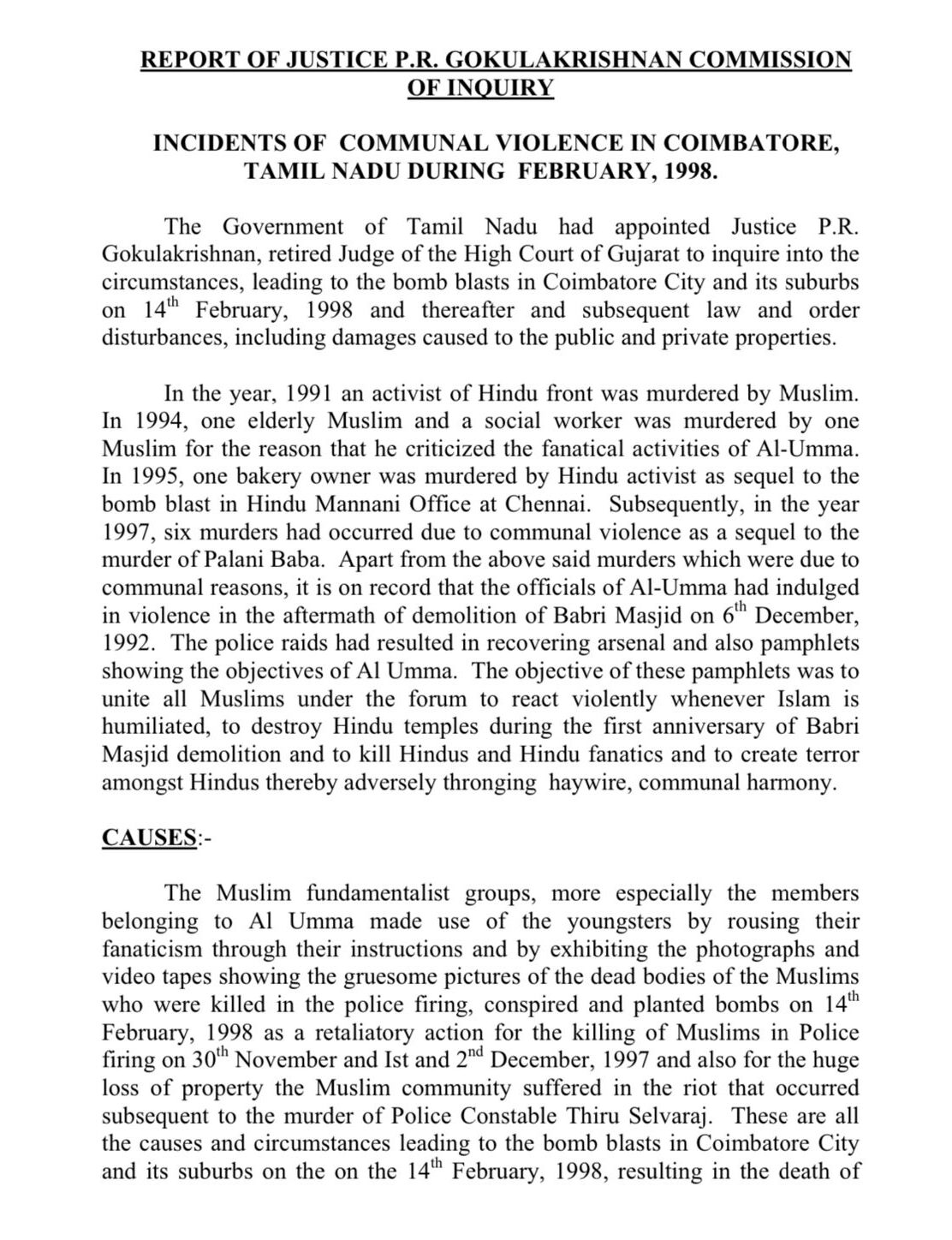
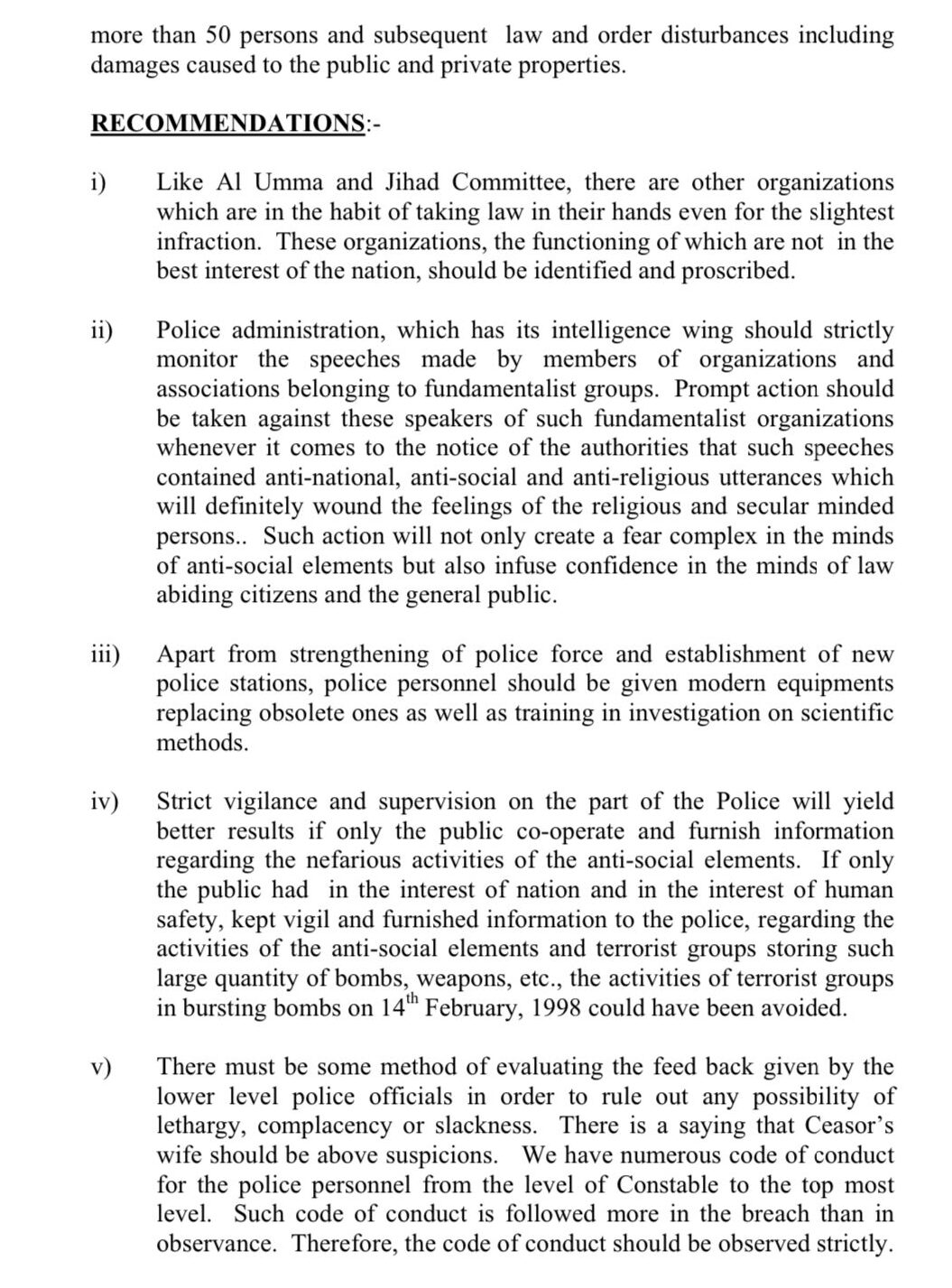
Who Was SA Basha?
S.A. Basha, the mastermind behind the 1998 Coimbatore serial bomb blasts, who founded the extremist organization Al-Umma, was responsible for planning the devastating blasts that killed 58 people and injured 231 others.
The Coimbatore serial bomb blasts of 1998 (DMK was in power in then) were a grievous incident in which 58 people were killed and over 200 individuals sustained serious injuries. This devastating series of 12 bomb attacks unfolded across 11 different locations within a 12-kilometer radius. Many of the survivors continue to grapple with the long-lasting effects of the shrapnel and other injuries caused by the devastating explosions.
The chief orchestrator behind these tragic events was identified as S A Basha, the founder of Al Ummah, an Islamic fundamentalist group. Investigations revealed that these bombings were part of a larger conspiracy with the sinister aim of targeting L.K. Advani, the leader of the Bharatiya Janata Party, during his election meeting scheduled for 4 p.m. on that ill-fated day. Fortunately, Advani’s flight was delayed, and he narrowly escaped the horrors of that day.
It is noteworthy to mention that one of the suspects, Mohammed Dhalka, who was detained in connection to the 2022 Coimbatore car blast terror incident is the nephew of SA Basha. Nawab Khan, Basha’s brother, was also sentenced to one-life term and 27 years of rigorous imprisonment in the 1998 bomb blast case.
The president of the banned fundamentalist outfit Al-Umma, SA Basha, openly threatened to kill the then Gujarat Chief Minister Narendra Modi if he visited Coimbatore in July 2003. This threat was made by Basha and eight others while speaking to journalists in the Coimbatore court premises after their conviction and life imprisonment in a case related to the murder of a Hindu Munnani leader. It is noteworthy that Al-Umma and its leader were allowed to operate openly by the DMK Government until the Coimbatore blasts on 14 February 1998.
Magazines like Outlook and Frontline also acknowledged the role of the Tamil Nadu Muslim Munnetra Kazhagam (TNMMK) in these blasts. In March 1998, Frontline reported, “Within hours of the blasts, the Tamil Nadu Government banned Al-Umma and the Jihad Committee. Al-Umma founder-president S.A. Basha and 12 other members of the organization were arrested in Chennai; explosive materials and weapons were seized from his house in Triplicane, Chennai.”
Subscribe to our channels on Telegram, WhatsApp, and Instagram and get the best stories of the day delivered to you personally.

